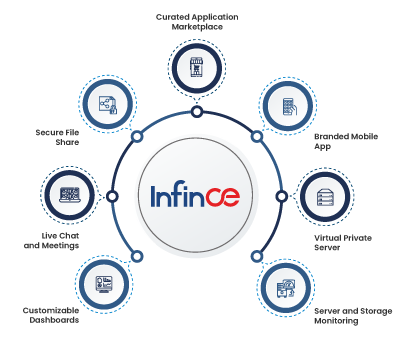Focus on these 5 KPIs to improve small business growth
The journey of building a successful small business involves several challenges. You need to understand and measure every step of your growth and this is where Key Performance Indicators or KPIs become a mainstay in your day to day operations. In simple words, KPI can be defined as a collection of checks that helps you understand whether your business is progressing in the right direction by doing the right things.
A large number of small business management or decision-makers find it difficult to understand what KPI’s they need to measure. Studies show that over 50% of small and medium business owners struggle to find even a single KPI that can be used to measure their growth strategy.
If you are among that half of the entrepreneur population, here is a list of 5 important KPI’s you can start to measure at your small business growth:
Related Reading: How To Build A Highly Productive Remote Workforce
1. Profit per employee
Very often decision-makers face a dilemma in their staffing priorities. The end result is mostly going for wrong hiring in bulk when your business really isn’t mature to afford such an influx of talent. A key KPI that can help you solve this puzzling scenario is to measure the profit each employee contributes to the company in terms of revenue realized.
If you keep a benchmark value, then hiring targets can be automatically aligned to ensure that profit per employee stays on track with expected profit figures. This profit figure per employee needs to be calculated every month for your first few years in the business to ensure that you can accommodate the growth pace that usually happens in a sporadic manner in the initial days.
2. Revenue per Customer
In the beginning, any customer revenue is appreciable but as you grow, there needs to be a clear direction on who your sales and marketing teams need to focus. For this, you need to arrive at a KPI for revenue per customer. With time, your operations should focus on continuing good relationships with your initial customers but your sales and marketing should be focused on attracting and on-boarding customers having higher revenue potential. For this, a measurement of revenue per customer as a KPI is necessary at all levels.
3. Sales and Marketing Metrics
As a business owner, you feel relaxed when your marketing and sales team ensures that a healthy lead pipeline is in place for future growth. This has to be a key KPI that needs constant checks as it can decide the course of action for almost every operational team in your organization based on the influx of deals from this pipeline.
Related Reading: Becoming Small Business Leaders In 2020: What You Need To Know
4. Time to Market
It is the time you need to bring a product or service to the market so that customers can purchase it. This is a KPI that is needed to ensure that you incorporate customer feedback, market trends and long term vision into your business growth strategies. In the initial days, there will be lesser influence from limited external stakeholders, but as the business grows, you need more inputs and consider more impact areas before launching every new product or service to ensure that you are able to meet stakeholder expectations across every segment.
5. Cash Reserves
At the end of the day, every business’s stability in the market is judged by the financial muscle it displays due to the cash reserve it has at its disposal. As such, it is one of the most important KPI’s you need to keep track of as a business owner. This is a driver behind several departmental operations such as budgeting, recruitment, infrastructure investments and much more.
Keeping your employees re-assured on their job security as well as your customers on agreed timelines of service or product delivery is possible if you have a clear vision of how cash reserves are growing as a KPI. A negative growth indicates that you need to keep investments on the check and re-imagine your strategies while a positive outlook on this KPI means that you can go ahead and scale your business risk-free.
Key Performance Indicators are a way to ensure your business has the right checks in place for a sustained growth phase irrespective of how the market operates. To successfully measure and track your KPI’s, there is a need for a







